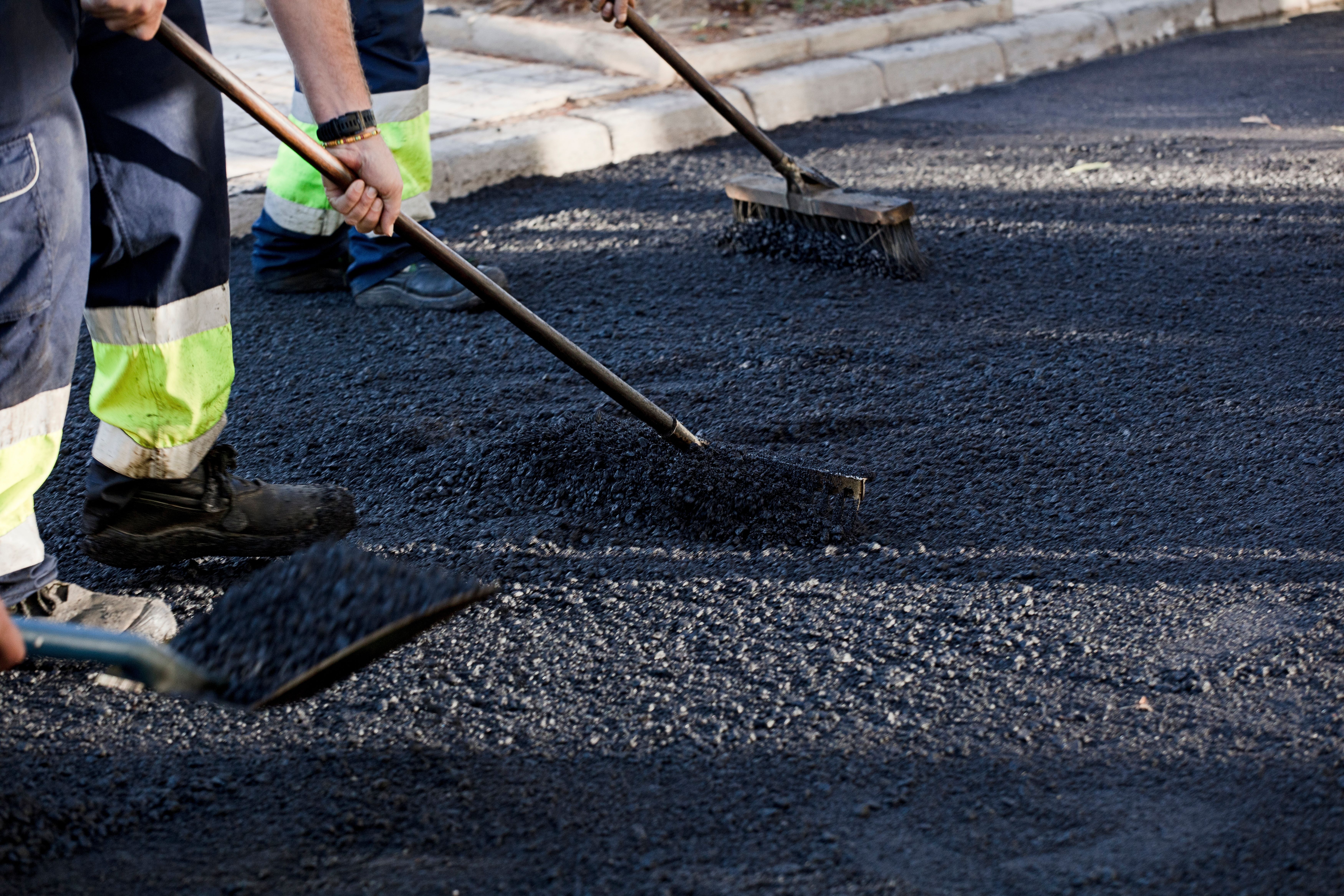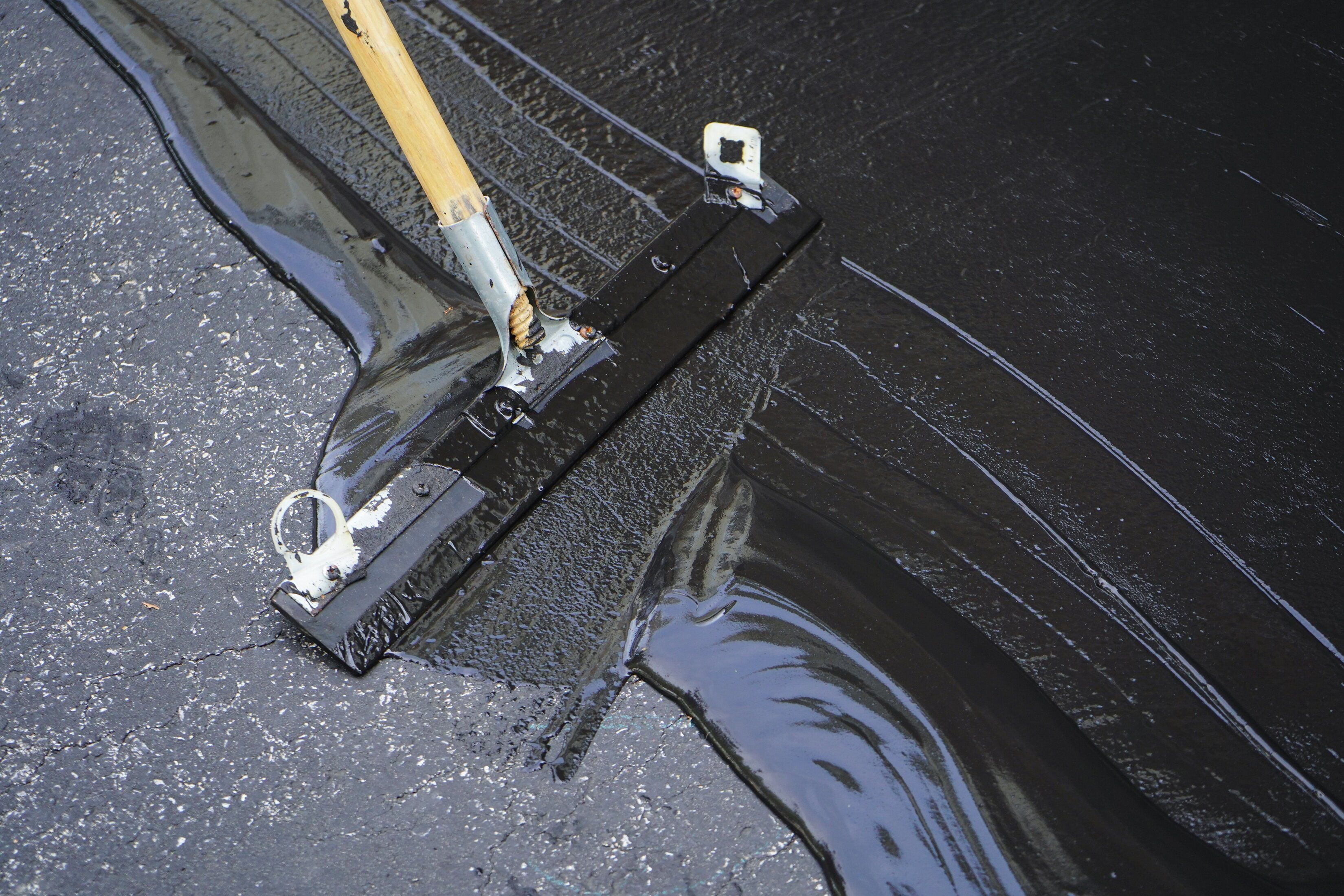


Asphalt is a durable paving material made from a mixture of aggregates like crushed stone, sand, and gravel, bound together with asphalt cement, a petroleum-based binder. This combination creates a flexible, weather-resistant surface ideal for roads, driveways, and parking lots.
At Star Paving Company, we use high-quality materials and proven techniques to deliver asphalt surfaces that are built to last. The right mix and expert application are key to long-term performance, and our team ensures every project meets the highest standards. Learn how our approach to asphalt outperforms other materials—and why it’s the smart choice for your next paving project.
Posted on 08/05/2025 at 12:11 AM

Planning a concrete project? Understanding the installation process is key to achieving a strong, long-lasting surface. In this step-by-step guide, Star Paving Company walks you through the essentials of professional concrete installation—from site prep to curing—so you know what to expect every step of the way.
Concrete installation is a meticulous process that requires careful preparation before pouring the mix. It's essential to lay the groundwork effectively to ensure a successful and long-lasting finish.
The first step in any concrete installation project is a comprehensive site evaluation. This a...
Read morePosted on 07/28/2025 at 03:09 PM

Whether you're making repairs to your parking lot or you're increasing the size of your paved lot, freshly painted lines and layout elements can help shoppers immediately make use of the new space. You can refresh old parking lots, invite more car traffic to your property, and make sure your commercial property properly complies with parking lot regulations. See how Star Paving Company can help with your next paving project.
Parking lot striping is the process of adding painted lines and shapes on parking lot surfaces. The painted markings can indicate separate parking spots, define lanes or pedestrian crosswalks, add directional arrows to manage the flow of t...
Read morePosted on 05/05/2025 at 11:23 AM

In Albuquerque and throughout New Mexico, parking lots endure harsh weather and daily use. Cracks, potholes, and drainage issues signal that it's time to replace your parking lot. Whether you need to replace a concrete parking lot due to wear and tear or are looking for a complete parking lot replacement to enhance curb appeal, understanding the signs of wear and the lifespan of materials helps prevent costly repairs, improves safety, and ensures longevity.
Albuquerque's unique climate can damage parking lots. The intense sun, occasional freezing temperatures, and monsoon rains contribute to wear and tear. While minor issues can often be repaired...
Read morePosted on 04/01/2025 at 12:59 PM

Asphalt and concrete are often considered interchangeable, but that couldn’t be further from the truth. While they can serve similar functions, these two materials are quite distinct. If you have to choose between asphalt and concrete for a paving job, you’ll need to weigh all the factors before you pick. Discover all you need to know about asphalt vs. concrete, their pros and cons, what they do, and which will be best for your project.
Asphalt and concrete are staples in construction, each bringing distinct advantages to various projects. Asphalt is a blend of aggregates, binder, and filler, often used for roads, driveways, and parking lots. Its f...
Read morePosted on 03/06/2025 at 12:54 PM

When it comes to asphalt maintenance, the two main options are milling and resurfacing. Both processes have their own advantages and shortcomings, so you might not always be sure which one is best for your business.
This blog post takes a closer look at both processes and outlines the steps involved in each one to help you make an informed decision.
Milling is the removal of a thin asphalt layer from the outer surface of your pavement or driveway. Experienced contractors use this process to repair small potholes or other minor defects on the asphalt surface.
First, your paving contractor identifies and marks the area that needs repairs. They then use a milling machine to remove t...
Read morePosted on 10/10/2024 at 03:59 PM

Asphalt (bitumen) comprises various crushed and blended substances to produce a beautiful and solid finish. While the material is common in roofing, it's also ideal for pavements and driveways.
Unfortunately, many people don't understand the numerous benefits of asphalt and its uses. Read this post for the ultimate guide on asphalt paving.
Asphalt is available in different types, which differ based on the components used to make it and their proportions.
One common type of this material is porous asphalt, which consists of small holes. The perforations make the substance environmentally friendly since they allow drainage. They also cleanse water and reduce impur...
Read morePosted on 10/10/2024 at 03:59 PM

If you're a property owner, especially a commercial property owner, you're aware that inviting clients to such a place demands boosting looks and making the site safe and clean. Parking lots, driveways, and roads usually suffer from damaging elements like rainwater and extreme heat in any commercial property. To avoid such problems, this is where asphalt seal coating comes in.
Here are the top reasons why you need asphalt, especially for your commercial property:
Unlike other properties, most commercial spaces suffer from extreme heat, cold conditions, and rain exposure. Therefore, to keep such places safe and protected against park...
Read morePosted on 10/10/2024 at 03:58 PM

For your physical business to survive stiff competition from online marketplaces, you've to maintain consistent flow of foot traffic. A good place to start is with a property upgrade which gives your customers the best first impression. If you have an unfinished parking lot, asphalt paving is a perfect idea to spruce up the property. The parking lot is the first feature customers notice when they come to your business.
With asphalt paving, you can turn the otherwise bland outdoor area into a functional and aesthetically appealing space. Read on and discover how professional asphalt paving can revolutionize your business.
Customers are keen on which comp...
Read morePosted on 10/10/2024 at 03:58 PM

The cold winter weather is unforgiving to asphalt driveways and surfaces. It makes them vulnerable to cracking, contracting, and buckling, resulting in lots of costly problems. Luckily, with proper care, you can keep your asphalt in pristine condition when the temperatures plummet. Learn ways to protect your asphalt driveway from the unforgiving effects of winter.
While asphalt is a durable paving material, it is vulnerable to wear due to age, traffic, and inclement weather. With time, your driveway may develop cracks, potholes, depressions, and raveling. Before the onset of winter, take time and check your driveway for damage or deterioration.
Do not ignore any ...
Read morePosted on 10/10/2024 at 03:51 PM